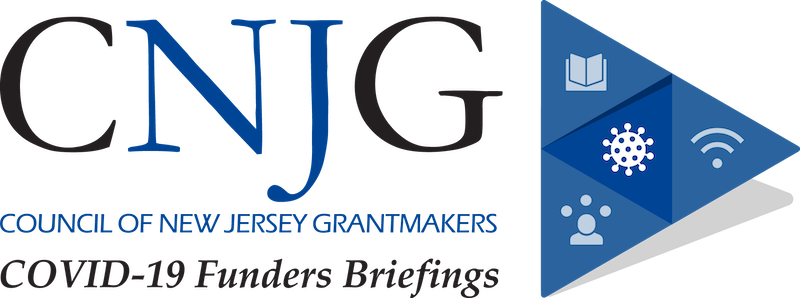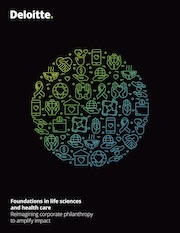... Conference for the Social Sector — Stronger Together: Philanthropy & Civic Engagement on June 18! If you ... We uplifted the future of work and the role of philanthropy in 2021 , with visionary conversations...
... proposal and reporting requirements divert time and resources for both nonprofits and philanthropy, needlessly burdens nonprofit partners and siphons scarce resources away from where they are most...
Publication Date: October, 2014
From the Commonfund, these white papers on investment policy statements, spending policy, board governance and risk tolerance, together with their most recent studies of investments at private and community foundations, operating charities and...
... This year, we explored the impact of AI and data on philanthropy and the nonprofit sector. Our panel discussion ... losing human connections, how it affects equity, and how philanthropy has engaged with AI for...
... Fund “to enable individuals and organizations to pool resources to support nonprofits facing increased demand and reduced resources.” This fund joins others formed earlier this ... virtually on a monthly basis via ...
Facing Our Future was a landmark initiative looking at the systemic, long term fiscal challenges facing all levels of government in New Jersey. It grew out of a 2010 briefing CNJG held for members that outlined how a Governor’s budget is annually...
... members as part of NCFP's Fundamentals of Family Philanthropy 2024 webinar series, providing guidance on the core tenets of effective family philanthropy. Join us to explore the considerations of family ...

CNJG hosts regular briefings where funders hear from government officials, disaster recovery and...
SC2020Event2.jpg The Future of Work and the Role of Philanthropy Date : This event has been postponed. After much ... 2020 Spring Colloquium, entitled The Future of Work and Philanthropy’s Role . This was a difficult...
Publication Date: September, 2014
Foundations Facilitate Diversity, Equity, and Inclusion: Partnering with Community and Nonprofits, a new report by the OMG Center for Collaborative...
Publication Date: April, 2009
To answer the basic question of how many active family foundations are planning to spend down or exist in perpetuity (or have not yet made a decision), and to examine foundations’ motivations and decision-making, the Foundation Center, in...
Welcome to the Council of New Jersey Grantmakers’ Foundation Funding Map, where members have free access to accurate, up-to-date grantmaking data critical to smart, strategic giving that makes the biggest impact.
The data shown on the map is...
... Evans, who explained the narrative ocean in which philanthropy swims, and gave examples of how Pop Culture ... CNJG members can view recordings and additional resources from the event on the resources...
Publication Date: April, 2014
In this new monograph, Philanthropy Northwest board member Daniel Kemmis explores the sometimes-fraught relationship between philanthropy and democracy. Beginning with a wide-ranging stroll through the shared history of...
Publication Date: June, 2014
... have proven to be a stubborn challenge for the field of philanthropy. A newly-released report by Forward Change ... of the career pathways of professionals of color in philanthropy—how they enter foundations, how...
... members as part of NCFP's Fundamentals of Family Philanthropy 2024 webinar series, providing guidance on the core tenets of effective family philanthropy. Designed specifically for family philanthropy...
What does the family philanthropy landscape look like? How has it changed across ... mean for the field? Join National Center for Family Philanthropy to discuss the findings of the Trends in Family Philanthropy...
... disparities? This webinar will explore how family philanthropy can play a pivotal role in supporting systems ... in partnership with the National Center for Family Philanthropy. Family Philanthropy...
Publication Date: June, 2018
The role of corporate philanthropy is at a pivotal point as executive, employee, ... industries can constructively transform existing corporate philanthropy models, the life sciences and health care ... in Life Sciences...
Publication Date: October, 2013
... research conducted by 21/64 and the Johnson Center for Philanthropy at Grand Valley State University and related ... and forging new paths as philanthropists. Revolutionizing Philanthropy: Explore the innovative ways...


